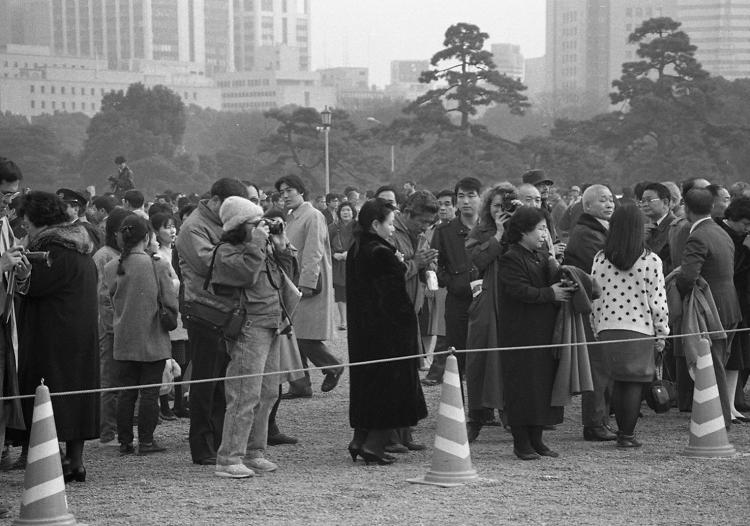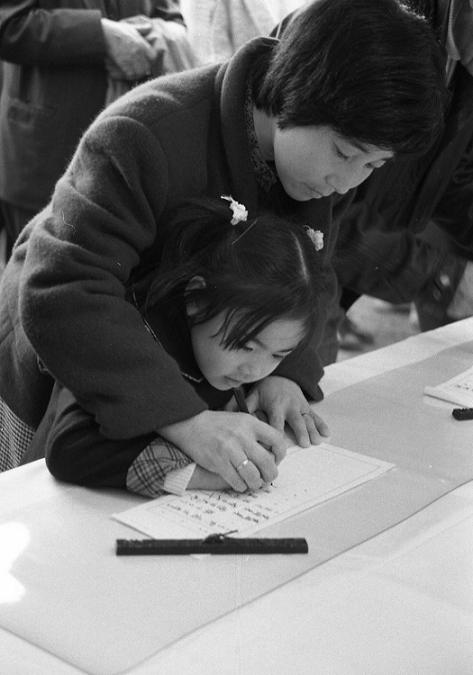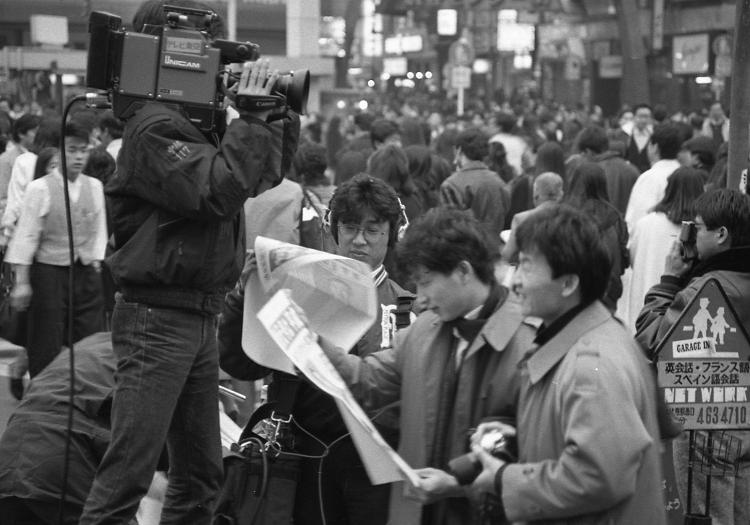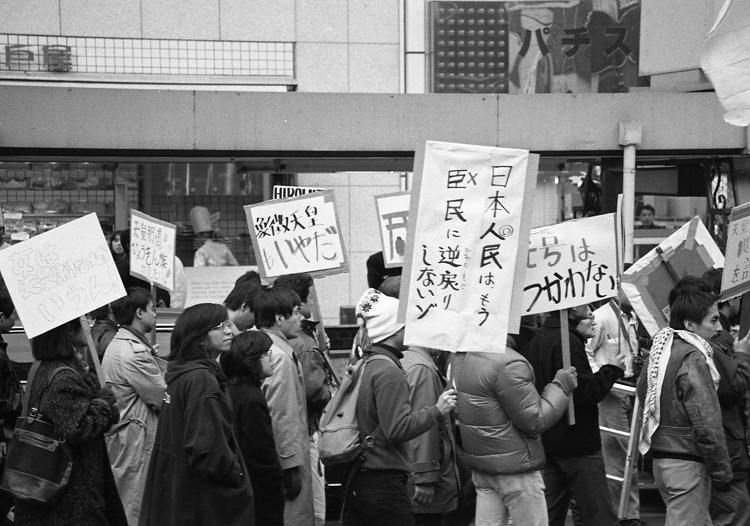



昭和から平成に
昭和64年1月7日午前6時33分、昭和天皇が崩御され,各新聞社からは号外が発行された。そして年号は、8日から平成に変わった。
私は渋谷駅前を中心に、その日を追った。
正月気分が抜けない渋谷駅前は人々で溢れていた。そこに、新聞社の号外が配られ、ビルの壁にある電光板には、「昭和天皇、崩御」のニュース速報が流れた。人々は我先に号外を手にし、その号外を持って記念撮影する人、悲しむ人、その一方で天皇制反対のデモ行進が夜まで続いた。
1つの時代が終わり、次の時代の幕開けの瞬間でもあった。
また、前日の皇居でのご記帳には、長蛇の列ができていた。
Showa to Heisei
It was passed away the Japanese Emperor Showa at 6:33 a.m. on January 7,
1989.
An extra was published from
each newspaper publishing company, and the name of an era turned into
"Heisei" from 8th.
I pursued the day around the
Shibuya station square.
The Shibuya station square
that New Year holidays feeling did not pass through overflowed with people. An
extra of a newspaper publishing company was distributed to there, and, to an
electric light board in a wall of a building, a newsflash of "the Emperor
Showa, demise" played.
People had an extra in their
hand in I ahead, and, on the other hand, the person whom I had the extra, and
took a ceremonial photograph and the person who grieved, a demonstration march
of Emperor system of Japan objection continued until the night.
One times were over, and it
was a moment of an opening scene of a play of the next times.
And people gathered to
register condolences at the Imperial Palace where the Emperor lived in and had
a long line.

渋谷駅前で配られた、毎日新聞の号外を手に記念撮影する青年。1989年1月7日
The young man who takes a ceremonial photograph in a hand by an
extra of a newspaper
distributed
at
the Shibuya
station sqare. January 7, 1989.
前日;1989年1月6日 皇居 The day before; january 6, 1989 The Imperial Palace





天皇をお見舞いし、記帳する国民。The nation whom I visit the Emperor and do it, and register.


1月7日 渋谷駅前 The January 7 Shibuya station square




毎日新聞の号外が配られた。An extra of a newspaper was distributed






その一方で天皇制反対のデモが行われた。
On the other hand, holding a demonstration to be against the Emperor system
of Japan was done.





